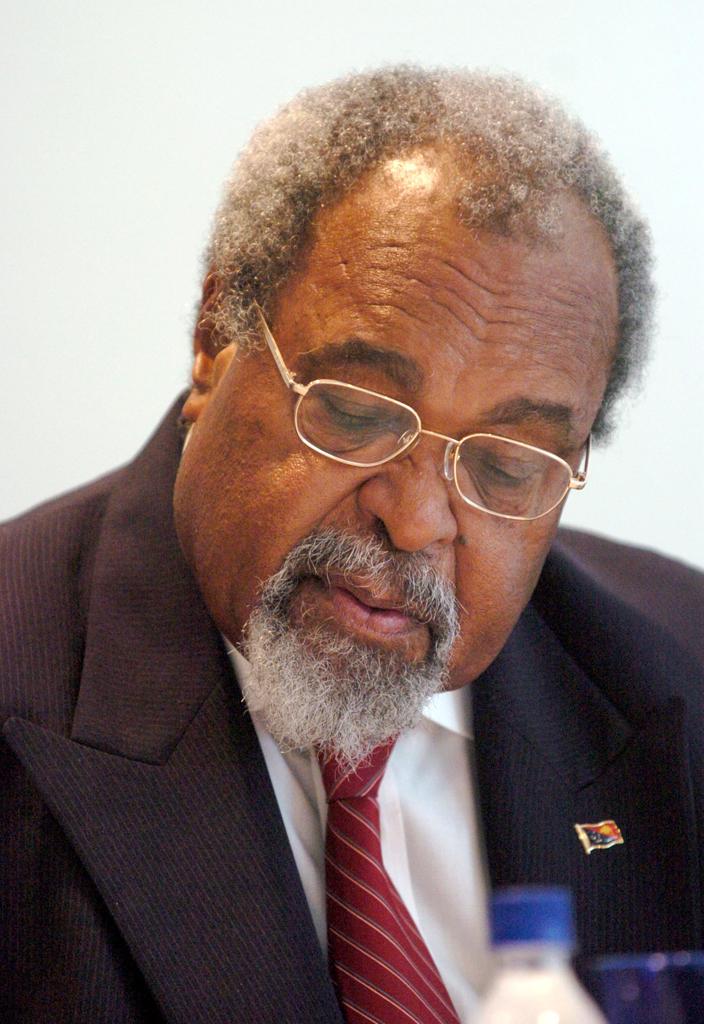Peter O’Neill defies Papua New Guinea Supreme Court ruling, leaving the country with two governments
Sir Michael Somare, Prime Minister of Papua New Guinea, was replaced by Phil O’Neill when he left Papua New Guinea for five months. He is trying to regain his post; the nation now has two prime ministers.
Prime Minister Peter O'Neill has refused to acknowledge a Supreme Court ruling that his position is unconstitutional, putting Papua New Guinea in the unprecedented political situation of having two ruling governments, The New York Times reported.
O'Neill was installed as prime minister by lawmakers in August, when long-time leader Sir Michael Somare, 75, left the South Pacific nation to receive a series of heart surgeries in Singapore.
The country's Supreme Court ruled 3-2 on Monday that the seat of the prime minister was not vacant when O'Neill was elevated to the position. Somare was Papua New Guinea's longest-serving prime minister, known as "the Chief" and heralded for leading the country to its independence in 1973. The court ruled that Somare's absence for five months this year did not mean he had left his post, The Telegraph reported. Both men have appointed their own police commissioners, which has heightened the tension in the region. Heavily armed police officers were patrolling the streets of the capital after the ruling was announced, the Times reported.
Somare has been fighting to regain his premiership since he returned to the island nation in September. O'Neill's government has passed laws which legalized his installment retroactively, The Times reported. One new law made ousting Somare legal, specifying that a prime minister can be dismissed if absent from the nation for more than three months, The Telegraph reported.
Papua New Guinea is entering uncharted territory, Jenny Hayward-Jones, a regional expert at the Lowy Institute for International Policy in Sydney, told The New York Times. “We have two prime ministers at the moment, one of whom is claiming his legitimacy from the Parliament and the other one from the Constitution,” she said.
Papua New Guinea has a population of seven million people and is 140 miles from the northern tip of Australia. It has a history of political violence; over ten years of civil war left thousands dead after separatists on Bougainville Island staged an armed insurrection in 1989, The Times reported. The country's capital, Port Moresby, was voted one of the world's least livable cities in 2011.
More from GlobalPost: Most livable cities 2011: Melbourne takes the prize
Australia's Foreign Minister Kevin Rudd said he was “deeply concerned” by the developments there, and urged Australians in Papua New Guinea to be cautious.
Despite its history of political turmoil, Papua New Guinea has a "golden goose" economy of gold and gas, The Telegraph reported. US oil corporation ExxonMobil is currently building the country's largest resource project, a $15.7 billion liquefied natural gas project, which is estimated to increase the nation's GDP by 20 percent.
